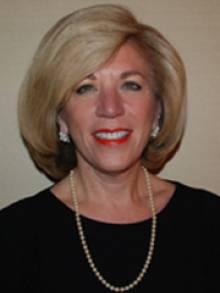Cynthia Sparer
MPA in Public & Nonprofit Management & Policy
-
1976

In 2009 Cynthia Sparer launched Sparer Associates, a health care consulting firm focusing on strategy, project management and business development. Well qualified to consult, she has had a career in health care spanning over 30 years and has held executive level positions at New York-Presbyterian Hospital, Monmouth Medical Center, Long Island Jewish Medical Center, and the University Hospitals of Cleveland. Early in her career she served at Bellevue Hospital, and Columbia University College of Physicians and Surgeons.
Throughout her career, Sparer has particularly appreciated working at institutions affiliated with universities, although she points out that working in teaching hospitals poses unique challenges. “When you have multiple missions, things become very complex,” she says. “You need to put the patients first, but at the same time, you are working to educate the next generation [of health care providers]. You must make sure the environment is conducive to asking questions and imparting knowledge but you also have to ensure that patients don’t just become subjects. You also have to ensure trainees are respected and not overworked.” But despite the complex challenges of working in a teaching facility, Sparer greatly enjoyed the work. “I have always found it exciting to work with people who are at the forefront of cutting edge research,” she says. “Working with talented doctors and nurses who are at the top of their game has been a really inspiring.”
Another aspect Sparer enjoyed in the university hospital setting is the presence of administrative residents. “I have always enjoyed having young people serving as residents,” she says. “You always learn from the questions they ask and it keeps you on your toes.” At New York-Presbyterian, as a matter or fact, many of the residents she had were students in Wagner’s health program. “I’ve really enjoyed being a preceptor,” she says, noting that she feels it is important to foster a teaching culture. “Health care is an even more important issue for people to focus on than it was when I started in the field,” she states, acknowledging that she would love to see some actual progress on the national level over the universal health care debate. “I’m all in favor of getting something done,” she says, “even if it’s not everything that everybody wants.” Sparer believes that perfection has become the enemy of good. “I remember vividly the debates at the beginning of the Clinton Administration and it not going anywhere.”
Sparer points out that one of the problems surrounding the debate is that “the people who are saying ‘I like my healthcare the way it is, and leave it alone,’ don’t realize that it’s a moving target. It’s not an issue of leaving it the way it is, it’s an issue of doing something, or it’s going to get worse.” Whether it’s increasing access to coverage or getting away from the issue of banning pre-existing conditions, Sparer believes that even small changes can be steps in the right direction.
Despite the challenges facing the health care world today, Sparer offers advice to emerging leaders in the field: “Don’t get jaded by what’s happening,” she says. “There’s a lot to be done. Whether it is policy, planning, or health care administration, there is plenty of room for bright young minds.”